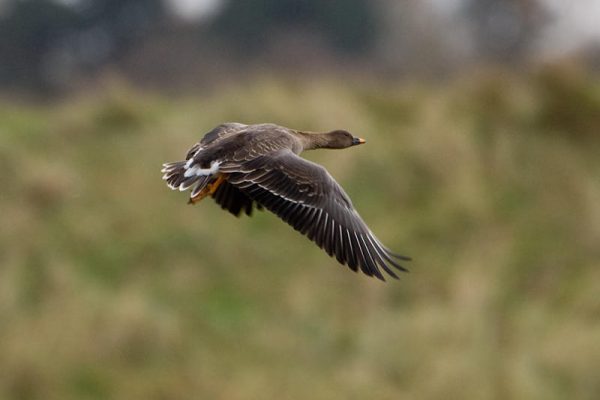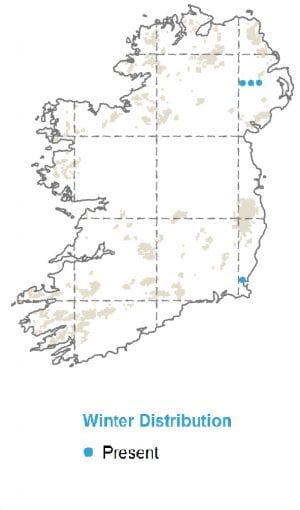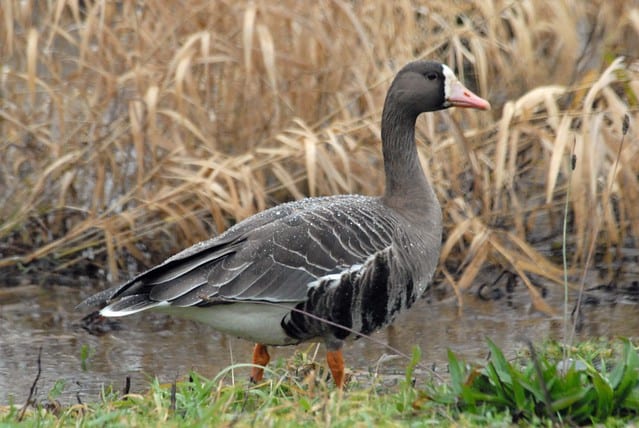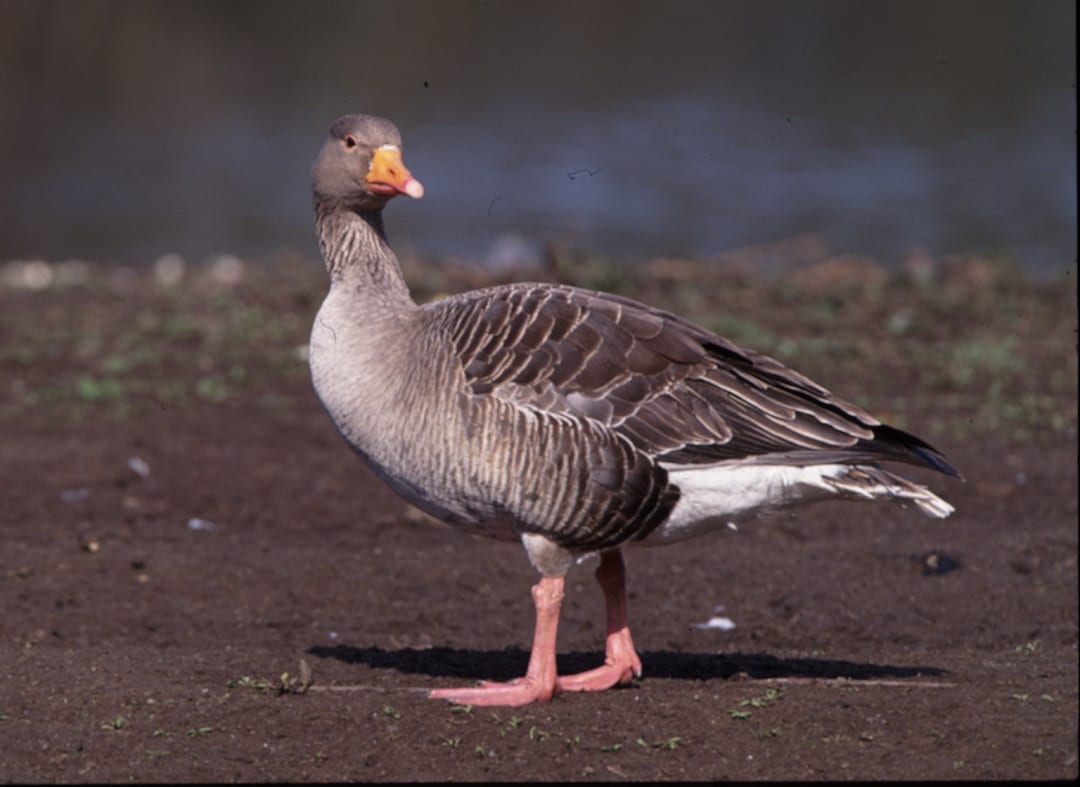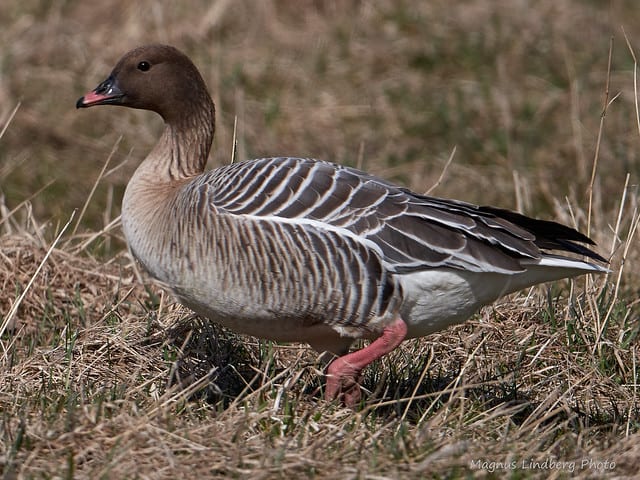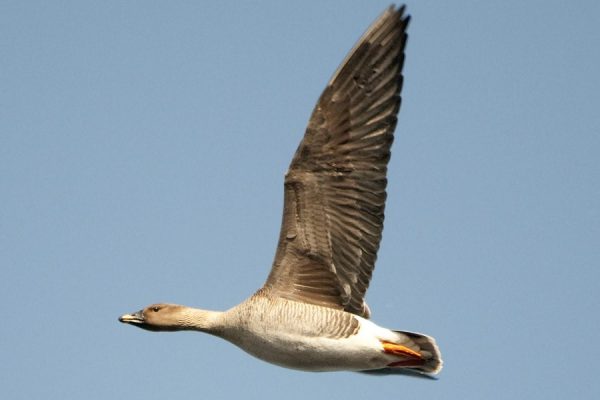
Bean Goose
| Irish Name: | Síolghé |
| Scientific name: | Anser fabalis |
| Bird Family: | Geese |
green
Conservation status
Conservation status
Status
A rare winter visitor from October to March
Identification
Very similar to Greylag Goose and care is needed to separate the two species. Bean Goose differs from Greylag Goose by having a dark brown head and neck, as well as darker orange legs. The beak colouring also differs, with Bean Goose having a mainly dark beak with orangey tip. Frequently there is a white rim surrounding the bill as in Greenland white-fronted Goose. The wings also lack the large bluey-grey patches of the Greylag Goose. Two different types of Bean Goose have occured in Ireland: Tundra bean Goose and Taiga bean Goose. These differ in bill structure and colouring, with Tundra having a small dark beak (similar to Pink-footed Goose), whereas Taiga has a large, mainly orange-coloured beak. The females are larger and have longer bills than the males. This allows them to forage on more deeply buried, slightly larger prey. Consequently feeding ranges differ between sexes in parts, and it is thought that males may also select lower quality habitat to avoid competition.
Voice
Usually silent.
Diet
Bean Geese typically feed on grasses, cereals and other crops.
Breeding
Breeds from Scandinavia eastwards across northern Asia.
Wintering
This species winters in flocks with other geese in open countryside. There is a small wintering population in East Anglia and northern Scotland. The majority of population can be found in very large flocks in the Netherlands and northern Germany.

